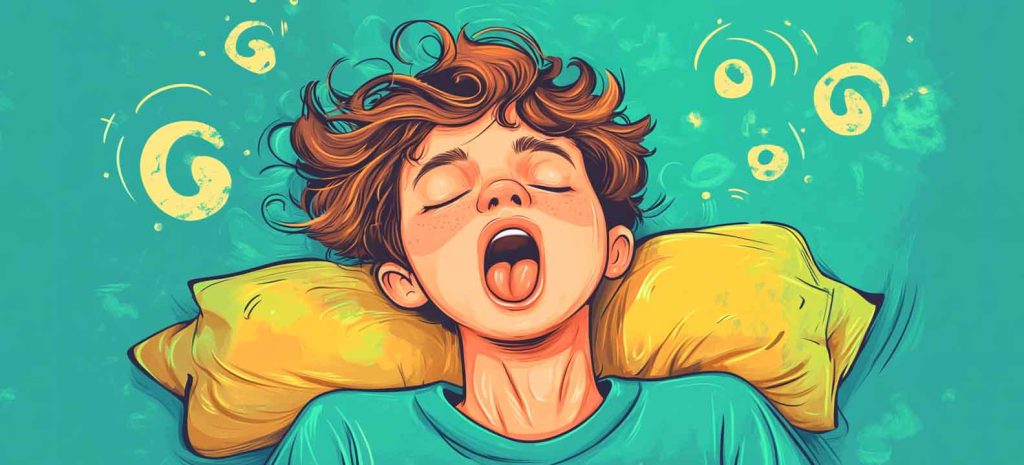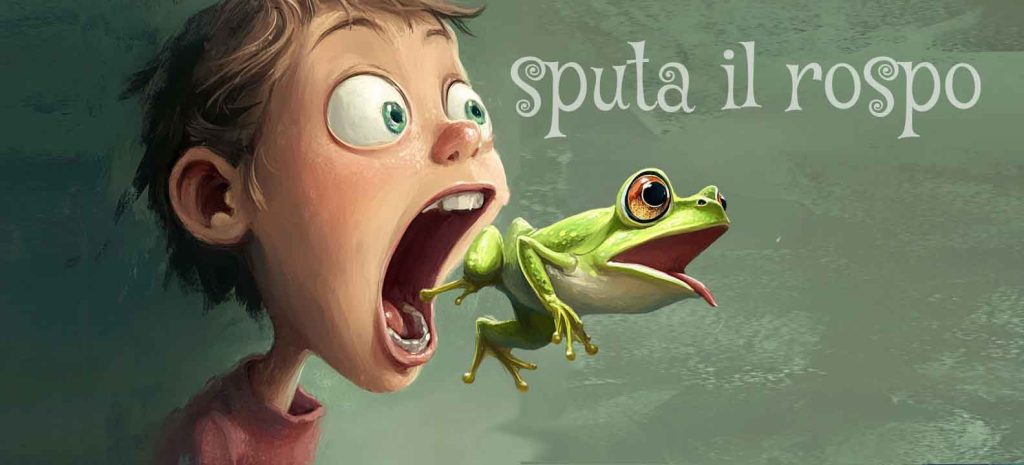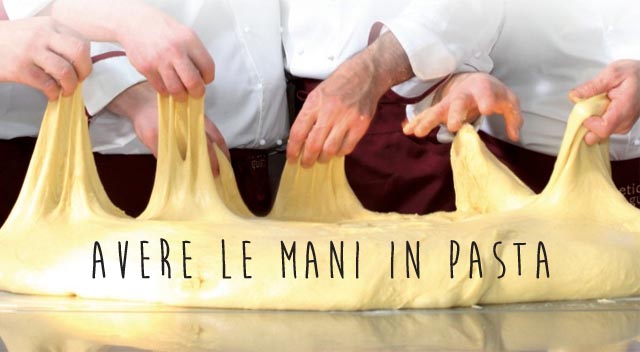
Dialogo del Corpo: Suoni che i nostro corpi fanno in italiano!
Body Talk: Sounds that our bodies are in Italian!
Singhiozzi, sbadigli, e altri rumori che i nostri corpi fanno
Sneezes, Hiccups, Yawns, and other noises our bodies make… in Italian!
Ehi intrepidi studenti d’italiano! Oggi esploriamo un angolo vivace e un po’ “birichino” del vocabolario che ogni studente inevitabilmente incontra: le parole per descrivere le affascinanti (e talvolta imbarazzanti) cose che il nostro corpo fa. Proprio come tutti gli altri, anche gli italiani starnutiscono, tossiscono, sbadigliano e perfino…ehm…fanno aria! E, naturalmente, hanno parole meravigliosamente espressive per tutto ciò.
Hey, intrepid Italian learners! Today, we’re exploring a lively and slightly “cheeky” corner of vocabulary that every language student inevitably encounters: words for the fascinating (and sometimes awkward) things our bodies do. Just like everyone else, Italians sneeze, cough, yawn, and even…ahem… pass gas! And, of course, they have wonderfully expressive words for it all.
Parole italiane per le stranezze quotidiane del tuo corpo
Italian Words for Your Body’s Everyday Quirks
Il tuo corpo ha un linguaggio tutto suo, e qui trovi un elenco divertente di parole italiane per descrivere quelle azioni quotidiane, involontarie (e a volte imbarazzanti). Qualunque cosa stia facendo il tuo corpo—che sia uno starnuto, un sospiro, un brontolio di stomaco, un po’ di russare o anche un suono attraverso il naso—questi termini italiani ti aiuteranno a dare voce a queste “espressioni corporee”!
Your body has its own unique language, and here’s a playful list of Italian words to describe those everyday, involuntary (and sometimes embarrassing) actions. Whatever your body is up to—whether it’s a sneeze, a sigh, a rumbling stomach, a bit of snoring even a snort through the nose—these Italian terms will help you put those “body expressions” into words!
Che siate pronti o no, andiamo!
Whether you’re ready or not, let’s go!
Starnuti, Sbadigli e Tiri su col Naso: Quei Momenti Rumorosi
Sneezes, Yawns, and Sniffles: Those Noisy Moments

Starnutire – to sneeze
Uno starnuto – a sneeze
Sbadigliare – to yawn
Uno sbadiglio – a yawn
Tirare su il naso – to sniffle
Soffiarsi il naso – to blow your nose
Naso bloccato/Naso chiuso – stuffy nose
Risata nasale – Laugh through nose
Non riesco a smettere di starnutire oggi!
I can’t stop sneezing today!
Quel starnuto era così forte che tutti si sono girati!
That sneeze was so loud that everyone turned around!
Durante la lezione non riuscivo a smettere di sbadigliare.
I couldn’t stop yawning during the lesson.
Il suo sbadiglio ha contagiato tutta la stanza!
Her yawn made everyone in the room yawn too!
Non tirare su il naso; prendi un fazzoletto e soffiati il naso.
Don’t sniffle; grab a tissue and blow your nose.
Scusate, devo soffiarmi il naso un attimo.
Excuse me, I need to blow my nose for a moment.
Ho il naso bloccato, è difficile respirare!
My nose is stuffy, it’s hard to breathe!
Non riuscivo a trattenermi e ho fatto una risata nasale.
I couldn’t hold back and snorted with laughter.
Suoni e Sospiri: Espressioni Involontarie
Sounds and Gasps: Involuntary Expressions

Singhiozzare – to hiccup
Avere il singhiozzo – to have hiccups
Sospirare – to sigh
Deglutire – to swallow
Soffocare – to choke or smother
Strozzare – to choke
Fischiare – Whistling mouth or nose
Una Tosse – a cough
Schiarirsi la gola – clear throat
Tic Nervoso – nervous tick
Spasmo – Spasm
Stridere i denti – Grinding Teeth
Russare – to snore
Ho iniziato a singhiozzare durante la cena e non riuscivo a smettere!
I started hiccuping during dinner and couldn’t stop!
Ho il singhiozzo da cinque minuti e sta diventando fastidioso.
I’ve had the hiccups for five minutes, and it’s getting annoying.
Dopo una lunga giornata di lavoro, ho solo potuto sospirare di sollievo.
After a long day at work, I could only sigh with relief.
Mi sono dimenticato di deglutire prima di parlare e ho tossito.
I forgot to swallow before speaking and ended up coughing.
Il fumo nella stanza mi faceva soffocare, così ho dovuto uscire.
The smoke in the room was making me choke, so I had to leave.
Attento a non strozzarti con quel boccone grosso!
Be careful not to choke on that big bite!
Quando ha il naso chiuso, sembra che fischi ogni volta che respira.
When he has a stuffy nose, it sounds like he whistles every time he breathes.
Oggi ho una brutta tosse e non posso smettere di tossire.
Today I have a bad cough and I can’t stop coughing.
Ha dovuto schiarirsi la gola prima di iniziare a parlare.
He had to clear his throat before starting to speak.
Ha un tic nervoso che lo fa sbattere l’occhio involontariamente.
He has a nervous tick that makes him involuntarily blink his eye.
Ho avuto uno spasmo muscolare alla schiena mentre sollevavo la scatola.
I had a muscle spasm in my back while lifting the box.
Durante la notte, Marco tende a stridere i denti, e questo disturba il sonno di tutti.
At night, Marco tends to grind his teeth, and this disturbs everyone’s sleep.
Mio padre russa molto forte di notte.
My father snores very loudly at night.
Sputi, Sudore, Lacrime e Altre Cose Bagnate e Disordinate
Spits, Sweats, Crying and other Messy Wet Things

Sputare – to spit
Sudare – to sweat
Traspirare – to perspire
Piangere – to cry
Mi Cola il naso – runny nose
Lacrimare – to ooze tearS
bavare – to drool
Sanguinare – to bleed
Scoppiare una vescica – pop blister
Curiosità / Fun fact: The Italian idiom “sputa il rospo” literally translates to “spit out the toad,” and it means to confess something or reveal a secret you’ve been holding back, especially if it’s something difficult or unpleasant to admit. It’s similar to saying “spill the beans” or “come clean” in English.
Curiosità / Fun fact: The Italian idiom “avere l’acquolina in bocca” or “far venire l’acquolina in bocca” literally translates to “have water in the mouth or have an increase in salivation” and it means “mouth-watering,” or have a hankering for something.
Dai, sputa il rospo! Cosa è successo davvero?
Come on, spit it out! What really happened?
Quando ho visto la pizza, mi è venuta l’acquolina in bocca.
When I saw the pizza, my mouth started watering.
Durante l’estate, sudo tantissimo anche solo camminando.
I couldn’t stop yawning during the lesson.
Con questo caldo, è normale iniziare a traspirare subito.
In this heat, it’s normal to start perspiring right away.
Un naso che cola è un fenomeno spiacevole, soprattutto nei bambini.
A runny nose is an unpleasant phenomenon, especially in children.
Quando mi ha raccontato la storia triste, non potevo fare a meno di far uscire le lacrime.
When she told me the sad story, I couldn’t help but let the tears come out.
I suoi occhi hanno iniziato a lacrimare per il vento.
Her eyes started oozing tears because of the wind.
Il film era così triste che non potevo fare a meno di piangere.
The movie was so sad that I couldn’t help but cry.
Il bambino sbava quando dorme e c’è lascia la sua bava sul cuscino.
The baby drools when he sleep and leaves drool on the pillow.
Mi sono tagliato e ho iniziato a sanguinare.
I cut myself and started bleeding.
Ho dovuto far scoppiare la vescica perché era molto gonfia.
I had to pop the blister because it was very swollen.
Sbattere le Palpebre, Stringere, Stiracchiarsi: Movimenti Volontari
Blink, Squeeze, Stretch: Voluntary Movements

Strizzare gli occhi – Squint
Stringere la mano – squeeze Hand
Scroccare le dita – Crack fingers
schioccare la lingua – click tongue
Schioccare le dita – snap fingers
Allungare il corpo/muscoli – stretch
Distendere le gambe – stretch Legs
Estendere i piedi – extend your feet
Scuotere la testa – Shake your head
Fun fact: The Italian word “scroccare” also has the meaning of “to mooch or freeload food or drinks or favors without paying for them.
Luca cerca sempre di scroccare la cena dai suoi amici invece di pagare per conto suo.
Luca always tries to mooch dinner off his friends instead of paying for himself
Non riesco a vedere bene il cartello, devo strizzare gli occhi.
I can’t see the sign well; I have to squint.
Mi ha stretto la mano per darmi conforto.
She squeezed my hand to comfort me.
Quando sono nervoso, inizio a scroccare le dita.
When I’m nervous, I start cracking my fingers.
Ha schioccato la lingua per mostrare disapprovazione.
He clicked his tongue to show disapproval.
Lui ha schioccato le dita a tempo con la musica.
He snapped your fingers in time to the music.
Dopo il lungo viaggio in macchina, avevo bisogno di sgranchirmi un po’.
After the long car trip, I needed to stretch out a bit.
È importante allungare il corpo ogni mattina per sentirsi più svegli.
It’s important to stretch the body every morning to feel more awake.
Dopo l’allenamento, ho preso del tempo per allungare i muscoli.
After the workout, I took some time to stretch my muscles.
Mi sono seduto e ho disteso le gambe per rilassarmi.
I sat down and stretched out my legs to relax.
Durante la lezione di yoga, ci ha detto di estendere bene i piedi.
During the yoga class, she told us to extend our feet fully.
Quando gli ho chiesto se voleva venire, ha semplicemente scosso la testa.
When I asked him if he wanted to come, he simply shook his head.
Problemi di digestione e stomaco: Dopo-pasto Vocabolario
Digesting and stomach issues: After-Meal Vocabulary

Digerire – digest
Metabolizzare – to metabolize
Ingrassare – to gain weight
Dimagrire – to lose weight
Stomaco legato in nodi – stomach knots
Vomitare – to vomit
Brontolio di stomaco – rumbling stomach
Fun fact: The Italian idiom “Avere le farfalle nello stomaco“ means to have butterflies in your stomach, the feeling of excitement when you are falling in love.
Dopo quel pranzo abbondante, ci vorrà un po’ per digerire tutto.
After that big lunch, it will take a while to digest everything.
Il mio corpo ha bisogno di tempo per metabolizzare i carboidrati.
My body needs time to metabolize the carbohydrates.
Durante le vacanze, ho iniziato a ingrassare un po’.
During the holidays, I started to gain a bit of weight.
Sto cercando di dimagrire facendo esercizio ogni giorno.
I’m trying to lose weight by exercising every day.
Dopo aver mangiato troppo in fretta, avevo lo stomaco in subbuglio.
After eating too quickly, I had an upset stomach.
Ero così nervoso per l’esame che avevo lo stomaco legato in nodi.
I was so nervous about the exam that my stomach was tied in knots.
Quando l’ho vista, ho sentito subito le farfalle nello stomaco.
When I saw her, I immediately felt butterflies in my stomach.
Dopo quella giostra, mi sentivo così male che ho dovuto vomitare.
After that ride, I felt so sick that I had to vomit.
Il mio stomaco sta brontolando.
My stomach is rumbling.
Il Richiamo della Natura: Quando Proprio Non Riesci a Trattenerti
Nature’s Call: When You Just Can’t Hold It

Fare pipì – to pee
Fare la cacca – to poop
Fare aria – to pass gas
Fun fact: The Italian word “scroccare” also has the meaning of “to mooch or freeload food or drinks or favors without paying for them.
Luca cerca sempre di scroccare la cena dai suoi amici invece di pagare per conto suo.
Luca always tries to mooch dinner off his friends instead of paying for himself
Scusa, devo fare pipì prima di partire per il lungo viaggio in macchina.
Sorry, I need to pee before we leave on the long car trip.
Il bambino ha detto che deve fare la cacca subito.
The child said he needs to go number two right away.
Era così imbarazzato perché ha scoreggiato durante la riunione.
He was so embarrassed because he passed gas during the meeting.
Quando il bambino faceva aria cominciava a ridere.
When the child passed gas, he would start laughing.

Con questo nuovo vocabolario supererai il livello di principiante.
With this new vocabulary, you’ll go beyond the beginner level.
Ecco fatto! Dagli starnuti ai rutti, dalle scoregge ai singhiozzi, ora siete ufficialmente pronti a parlare delle cose che fa il vostro corpo—che siano volontarie o involontarie—con un po’ di stile in italiano. Fidatevi, queste parole torneranno utili la prossima volta che sarete colti di sorpresa (o colti a starnutire)! Buona fortuna!
So there you have it! From sneezes to burps, farts to hiccups, you’re now officially ready to talk about the things your body does—whether it’s involuntary or voluntary—with a little flair in Italian. Trust me, these words will come in handy the next time you’re caught off guard (or caught sneezing)! Buona fortuna!










